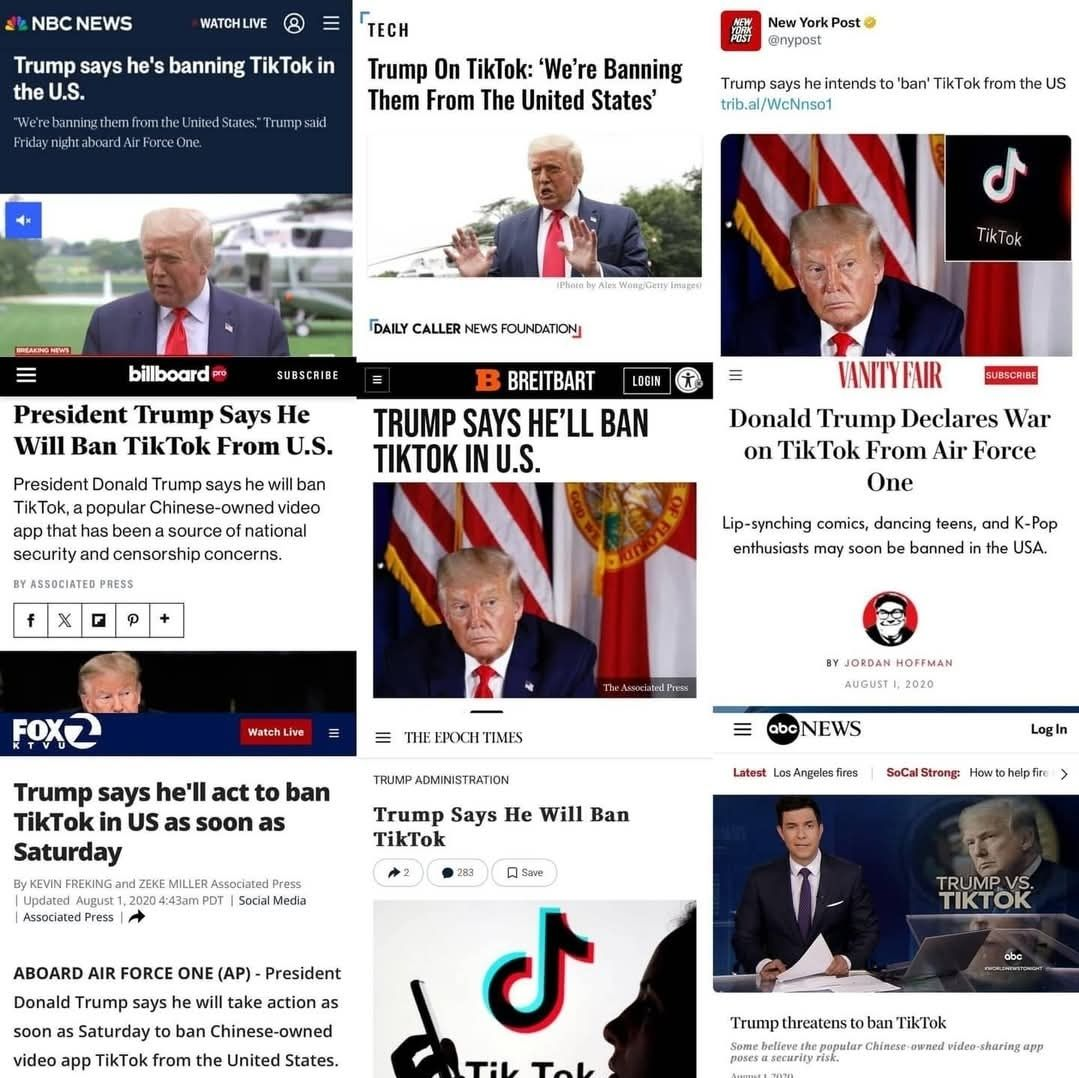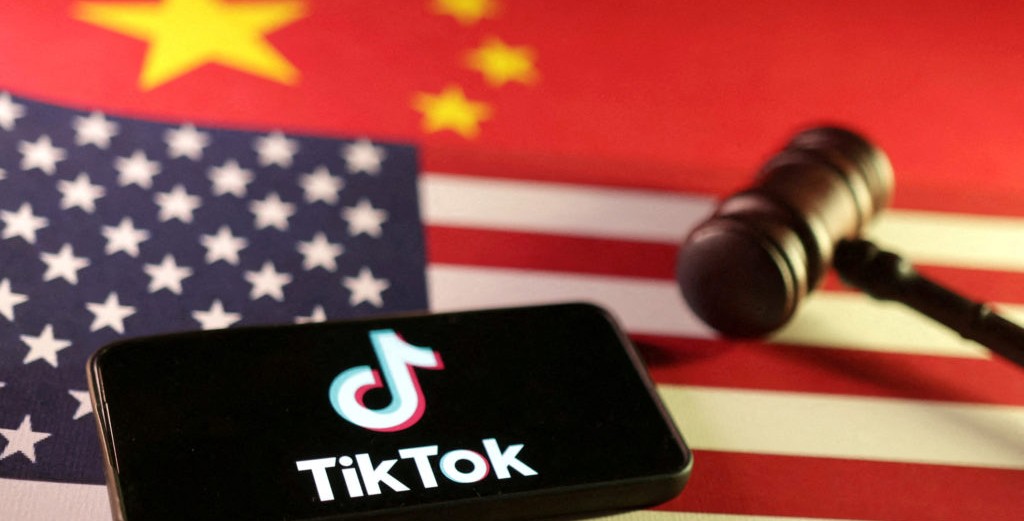As of January 19, 2025, TikTok has become inaccessible to nearly all of its 170 million users in the United States. Will it last? Why did this happen in the first place?
Editor’s Note: Less than 24 hours after TikTok took its services offline, it began restoring access for many users, based on positive-leaving comments from President-elect Donald Trump, who will be sworn in at 12 noon Eastern Time on January 20th.
As of January 19, 2025, TikTok has officially gone dark – or become inaccessible – for its 170 million users in the United States. This comes after the enforcement of a federal law requiring ByteDance, TikTok’s Chinese parent company, to divest its U.S. operations or face an outright ban. The shutdown marks the culmination of years of scrutiny over national security concerns tied to the app’s Chinese ownership.
It’s worth noting that although TikTok has faced similar scrutiny in other countries – and has even been banned in several of them – this is the first time a major social media app has been banned and effectively deactivated in the United States.
WHY WAS THERE A LAW IN PLACE TO BAN THE APP?
The U.S. government’s concerns about TikTok stem from its ties to ByteDance and fears that user data could be accessed by the Chinese government under its national security laws. These anxieties have persisted despite TikTok’s assurances of data localization and transparency. Cybersecurity experts and lawmakers from across the political spectrum argued that the app posed a national security risk, claiming it could be used for surveillance or influence operations.
In early 2024, Congress passed the Protecting Americans from Foreign Adversary Controlled Applications Act (PAFACA), which gave ByteDance until January 2025 to divest its U.S. operations to an American entity.
The bill was passed overwhelmingly, with strong bipartisan support, and was signed into law by President Joe Biden in April 2024, thus giving ByteDance nine months to start the process of finding a buyer.
ByteDance’s failure to comply led to the ban, which the U.S. Supreme Court upheld just days before its enforcement.

THE SHUTDOWN
With the ban now in effect, TikTok has been removed from Apple’s App Store and Google Play in the United States. Users attempting to access the app are greeted with a message indicating its unavailability. While existing downloads remain on devices, functionality has been disabled, leaving millions of Americans scrambling to find alternative platforms.
The move has disrupted not only casual users, but also influencers, content creators, and businesses who relied on TikTok for income and engagement. This sudden disappearance has sent shockwaves through the digital marketing and entertainment industries, though it’s unclear exactly why this is, since this was not a sudden, out-of-the-blue move: the prospect of a ban, along with its effective date, has been openly and prominently present in the news for many months.
REACTIONS FROM WASHINGTON
The ban has drawn a range of political responses. Outgoing President Joe Biden defended the measure as necessary to protect national security. Meanwhile, President-elect Donald Trump has signalled a willingness to explore ways to reinstate TikTok, potentially allowing a 90-day extension to facilitate a sale or other compliance measures.
The broader debate over TikTok reflects growing bipartisan agreement on the need to address technology risks tied to China, but there remains division over how to balance security concerns with free-market principles.
It’s worth noting that incoming President Trump once spoke out strongly against TikTok. During Trump’s presidency, he and his administration sought to ban TikTok due to national security concerns over its Chinese ownership. However, in March 2024, Trump suddently reversed his stance after meeting with Jeff Yass, a significant Republican donor and major investor in ByteDance, TikTok’s parent company.

This meeting raised questions about the influence of billionaire donors on political decisions. Observers noted that Trump’s policy shifts regarding TikTok appeared to align with the interests of his financial backers, suggesting a transactional approach to policy-making.
Additionally, reports indicated that TikTok was set to sponsor Trump’s inauguration party in January 2025, further highlighting the complex relationship between political decisions and corporate interests. Shou Zi Chew, the CEO of TikTok in the U.S., will be at Trump’s inauguration, seated in a prime spot near the ceremony.
It remains to be seen how much good it will do for anyone to pin their hopes on Donald Trump. To date, he has suggested he would enact the law’s provision for a 90-day delay, but even that might run into problems. That part of the law does indeed allow a sitting president to delay the ban, but with the caveat that a sale be in process. At this point, that is not the case.
Furthermore, this ban is the result of a federal law – a result, once again, of a bill written and passed with strong bipartisan support in Washington, and signed into law by the president, and upheld by the Supreme Court. Such laws cannot simply be wiped away by the signature of a president, so it’s unclear how much Trump can actually do. Americans have learned to expect the unexpected with Donald Trump, of course, but fans of the app may end up bitterly disappointed if they think he can just wave his hand, circumvent the law of the land, and easily save TikTok.
Time, of course, will tell.

BYTEDANCE’S RESPONSE AND A SHIFT TO DIFFERENT PLATFORMS
ByteDance has consistently denied allegations that TikTok data is accessible to the Chinese government. The company filed legal challenges against PAFACA, arguing that the legislation violates the First Amendment. However, the U.S. Supreme Court unanimously upheld the law on January 17, allowing the ban to proceed.
Shou Zi Chew, TikTok’s CEO, expressed disappointment over the decision, stating, “We remain committed to finding a resolution that allows TikTok to continue serving its U.S. community.” ByteDance has reportedly explored potential buyers for TikTok’s U.S. operations, though no deals have been finalized.
Knowledgeable observers have opined that there is virtually no chance at all that ByteDance would ever sell TikTok’s U.S. operations together with its coveted algorithm. Without that detailed set of operational instruction code, the platform still has plenty of value, but the future app that might emerge as a result of a sale without the core algorithm would be a very different app indeed from todays’ TikTok.
The absence of TikTok has created a vacuum that competing platforms are eager to fill. Instagram Reels, Lemon8, Clapper, and even the relatively unknown Chinese app RedNote have reported a surge in downloads. These platforms are racing to capture disillusioned TikTok users, many of whom have voiced frustrations about starting over elsewhere.
RedNote, in particular, has attracted attention due to its similarities to TikTok and its Chinese ownership. Critics argue that RedNote could face similar scrutiny, while advocates say its rise highlights the enduring appeal of short-form video content.
The prospect of a ByteDance divestiture remains on the table, with several companies reportedly expressing interest. U.S.-based tech firms, private equity groups, and even international conglomerates could play a role in acquiring TikTok’s American operations. Observers speculate that a successful sale might allow the app to return to the U.S. market in a restructured form, much like Huawei’s spin-off of Honor to avoid U.S. sanctions.

GLOBAL IMPLICATIONS
The TikTok ban in the U.S. has raised questions about the future of Chinese-owned apps worldwide. Analysts suggest that similar bans may surface in countries closely aligned with the U.S., such as the UK, Australia, and Canada. These nations are increasingly scrutinizing the role of Chinese technology companies in their domestic markets.
This isn’t the first time TikTok has run into such problems, either. Several countries, including India, Afghanistan, Iran, and Jordan, among others, have enacted complete bans on TikTok, and it’s certainly not lost on security experts that the international version of the app, which is what was just banned in the U.S., is not even allowed in its home country of China.
For Malaysia and the rest Southeast Asia, where TikTok enjoys immense popularity, the U.S. ban may seem distant but serves as a reminder of the geopolitical tensions influencing global tech ecosystems. Southeast Asian governments and businesses will likely monitor the situation closely, particularly as data sovereignty and digital security emerge as critical issues.
TikTok’s absence in the United States marks a watershed moment in the ongoing battle over digital sovereignty and tech regulation. While the app’s U.S. future remains uncertain, the global debate over Chinese-owned technology is far from over. Whether through divestiture, policy changes, or legal appeals, the resolution of TikTok’s saga will set a precedent for how nations address similar issues in the years to come.
"ExpatGo welcomes and encourages comments, input, and divergent opinions. However, we kindly request that you use suitable language in your comments, and refrain from any sort of personal attack, hate speech, or disparaging rhetoric. Comments not in line with this are subject to removal from the site. "





















